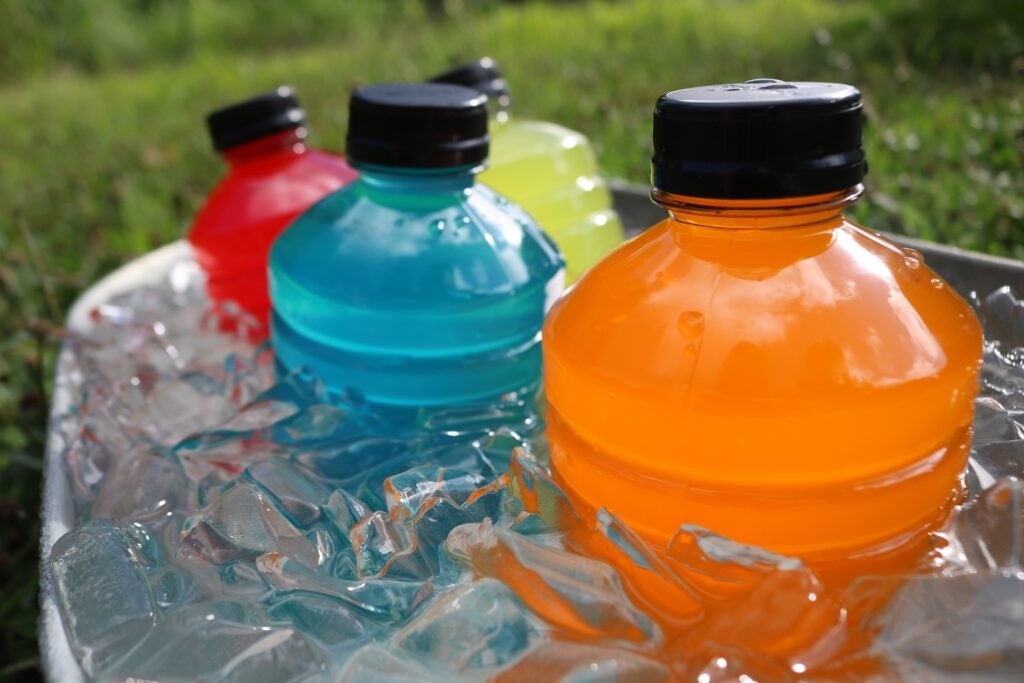
Sports drinks are advertised to replenish glucose, fluids, and electrolytes (sodium, potassium, magnesium, calcium) lost during strenuous exercise as well as to enhance endurance. [1] Some brands also contain B vitamins associated with increased energy (not to be confused with energy drinks, which are a different product entirely). Sports drinks contain carbohydrate in the form of sugar (e.g., glucose, high-fructose corn syrup, sucrose) or contain no sugar and are flavored instead with low-calorie sweeteners. The specific amount of sugar and electrolytes in sports drinks is intended to allow for quick hydration and absorption.
This type of nutrient depletion generally occurs only with high-intensity exercise that lasts an hour or more. For the non-athlete, a sports beverage is just another sugary drink.
Sports Drinks and Health
Research has shown benefit of sports drinks in adult athletes (though not conclusive as some studies show no benefit), but research in children is lacking. [2] Children sweat at highly variable rates, so it is more difficult to establish an amount of exercise time that the drinks may be useful. [1] However, with monitoring by coaches or parents, providing these drinks to children and adolescents who are exercising vigorously for more than 60 minutes may help to prevent dehydration. For children who are engaged in routine or play-based physical activity, these drinks are usually unnecessary. [1]
Estimates show that sports drinks comprise about 26% of total sugar-sweetened beverage intake in adolescents. [2] Sports drinks contain less sugar than soda and energy drinks, but still contain simple sugars. For example, a nutritional comparison shows that a 12-ounce cola drink contains about 39 grams of sugar, compared with 21 grams of sugar in a popular sports drinks. Drinking too many of these, especially when not performing vigorous exercise, can increase the risk of overweight/obesity and other health problems such as type 2 diabetes, cardiovascular disease, and gout. There is also a risk of dental caries.
- A study following more than 4,100 females and 3,400 males for 7 years as part of the Growing Up Today Study II found that the more frequently sports beverages were consumed, the greater the association with an increased body mass index leading to overweight/obesity, especially in boys. [2] The authors cited endorsements of the drinks by sports celebrities as a strong influencer in young male athletes. The drinks may also be perceived as healthy because they are allowed to be sold in schools and sporting events, so may be consumed in excess.
Bottom Line
Water that is calorie-free and accessible without cost to most people is the beverage of choice taken with and between meals. A sports drink may be used by people engaging in exercise of vigorous intensity for more than one hour, especially if sweating heavily. Perhaps of greater importance in athletes of any age, but especially youth, is to encourage a balanced diet, snacks as needed, and adequate water that will best enhance physical and mental performance. Pediatricians should discuss the use of sports drinks with their young patients and parents to ensure that all are aware of the health risks, and if used, are monitored carefully. [3]
Related
Electrolyte Drinks
Sugary Drinks
Energy Drinks

